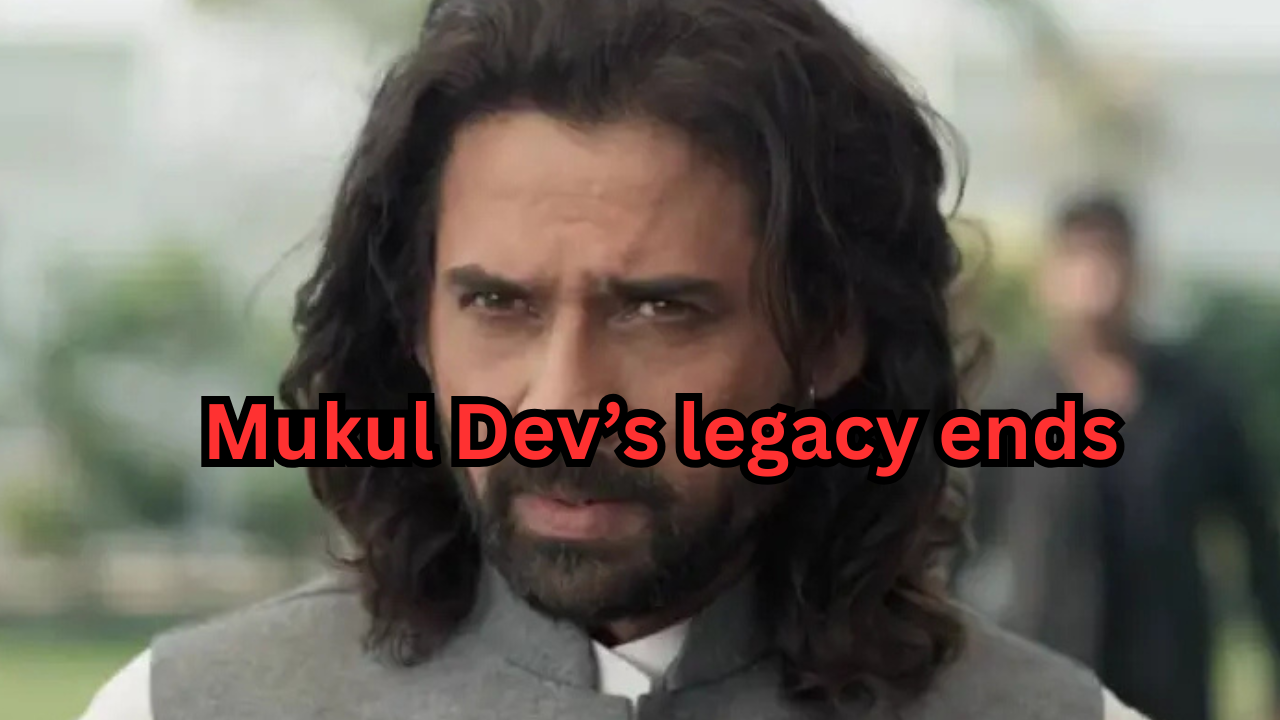Manoj Kumar, one of Indian cinema’s most beloved legends, died on April 4, 2025, at the age of 87. The industry sends its deepest condolences to his memory.
Known for his unparalleled contribution to Indian films, Manoj Kumar was affectionately celebrated as “Bharat Kumar,” a title that embodied his unshakable connection to the idea of patriotism and love for his country.
His demise marks the end of an era, leaving an irreplaceable void in the hearts of millions.
The Man Behind the Icon
Manoj Kumar, originally named Harikrishan Giri Goswami, was born on July 24, 1937, in Abbottabad, then a part of British India (now in Pakistan).

Manoj Kumar : One of Indian cinema’s most beloved legend .
The tumultuous Partition of India played a significant role in shaping his early life, as his family relocated to Delhi. This migration, fraught with challenges, planted in him the seeds of resilience and patriotism that would later define his cinematic journey.
From his teenage years, Manoj Kumar showed a penchant for storytelling and performing arts. Inspired by the great Dilip Kumar and the captivating world of films, he adopted his screen name and ventured into Bollywood with dreams larger than life.
His transformation from an optimistic upstart to one of Indian cinema’s most renowned actors was truly remarkable.
A Cinematic Journey Rooted in Patriotism
Manoj Kumar’s name became synonymous with patriotism and social consciousness, thanks to the pivotal roles he portrayed and the narratives he brought to life on the silver screen. His defining moment came with the 1965 film “Shaheed,” based on the life of the revolutionary Bhagat Singh. This film established Kumar as more than an actor—it marked him as a storyteller who could channel the nation’s emotions and aspirations.
Following “Shaheed,” Manoj Kumar directed and starred in “Upkar” (1967), a film inspired by former Prime Minister Lal Bahadur Shastri’s slogan, “Jai Jawan, Jai Kisan” (Hail the Soldier, Hail the Farmer).
This masterpiece solidified his status as “Bharat Kumar” and solidified his standing in the public’s eyes.
He continued to explore the theme of patriotism in films like “Purab Aur Paschim” (1970) and “Kranti” (1981), creating a niche that few could rival.
A Versatile Genius
While Kumar is best remembered for his patriotic films, his repertoire was anything but narrow. Films like “Roti Kapda Aur Makaan” (1974) and “Sanyasi” (1975) showcased his versatility as an actor, director, and writer. He deftly wove themes of economic disparity, societal challenges, and spiritual exploration into his narratives, proving that he could connect with audiences on multiple levels.
His skill as a director and storyteller also extended to infusing his films with impactful dialogues and memorable music. Songs like “Mere Desh Ki Dharti” from “Upkar” and “Hai Preet Jahan Ki Reet Sada” from “Purab Aur Paschim” are eternal classics that continue to evoke a sense of pride and nostalgia.
Recognitions and Accolades
Manoj Kumar’s illustrious career was celebrated with numerous accolades, both national and international.
For his services to Indian cinema, the Indian government granted him the Padma Shri in 1992.
In 2015, he received the prestigious Dadasaheb Phalke Award, the highest honor in Indian cinema, recognizing his lifetime achievements and influence on the industry.
His films were not only box-office successes but also cultural phenomena that sparked conversations and inspired movements. Manoj Kumar’s ability to channel societal narratives into compelling stories made him a pioneer in Indian cinema.
The Final Curtain
The legendary actor breathed his last at Kokilaben Dhirubhai Ambani Hospital in Mumbai after battling a prolonged illness.
The news of his demise sent waves of sorrow across the nation.
Leaders, fellow actors, and fans alike expressed their condolences and paid tributes to the man whose work transcended the boundaries of entertainment.
Prime Minister Narendra Modi led the nation’s mourning, stating, “Manoj Kumar Ji was an institution in himself. His films inspired generations, instilled a sense of national pride, and depicted India’s diversity and values. His passing is a profound loss to our culture.”
A Legacy Beyond the Silver Screen
What set Manoj Kumar apart was not just his cinematic brilliance but also his unwavering commitment to his ideals.
He promoted causes that the general public found compelling through his work, elevating his films above simple pleasure.
They were vehicles of change, education, and empowerment.
His legacy lives on in the countless filmmakers and actors he inspired. The newer generations of Indian cinema continue to draw from his storytelling techniques, thematic focus, and dedication to craft. Kumar’s influence extends beyond Bollywood, finding echoes in regional cinema and international platforms.
A Nation in Mourning
As fans lit candles and garlands adorned his portraits, the collective grief of a nation was palpable. Social media was flooded with messages celebrating Manoj Kumar’s contributions and sharing anecdotes of how his films touched lives. Many gathered outside his residence in Mumbai to pay their respects, turning the streets into a sea of admirers.
Conclusion: Celebrating Bharat Kumar
Manoj Kumar’s passing marks the end of an era but not the end of his impact. His films, steeped in patriotism, social relevance, and artistic excellence, remain a cornerstone of Indian cinema. As we bid goodbye to “Bharat Kumar,” we celebrate a life well-lived, a career that inspired millions, and a legacy that will continue to shine for generations.
In the words of his iconic song, “Hai Preet Jahan Ki Reet Sada,” Manoj Kumar’s spirit will forever reside in a land that values love, sacrifice, and unity. Farewell, Bharat Kumar.
You will be missed, but your essence will live on in the heart of India.
For more News stay to Bulletins45.



2l6kow
Thanks for sharing. I read many of your blog posts, cool, your blog is very good. https://www.binance.info/register?ref=IHJUI7TF
Your point of view caught my eye and was very interesting. Thanks. I have a question for you. https://accounts.binance.com/register-person?ref=IHJUI7TF
Thanks for sharing. I read many of your blog posts, cool, your blog is very good.
Reading your article helped me a lot and I agree with you. But I still have some doubts, can you clarify for me? I’ll keep an eye out for your answers.
Your article helped me a lot, is there any more related content? Thanks!
Your article helped me a lot, is there any more related content? Thanks!
Thanks for sharing. I read many of your blog posts, cool, your blog is very good. https://accounts.binance.com/register-person?ref=IXBIAFVY